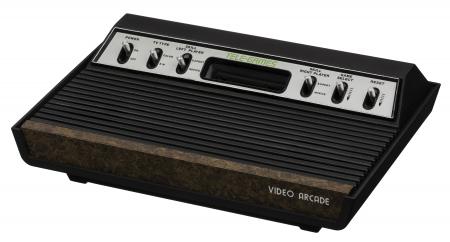Clones of consoles are surprisingly common; especially for highly popular consoles such as the Nintendo Famicom. Most of these clones are far from legal, however – companies whose business model is underpinned by actually selling things to people usually don’t like it when other people start selling the same thing, after all. So it’s rare to find an officially licensed clone of a console, yet that’s exactly what happened when Sears released their TeleGames Video Arcade machine.
Back at the start of the video game industry, few people knew what a video game or a console was. The Magnavox Odyssey had blown the minds of young kids who played it but it was hardly a household name and although Atari were making some serious money from Pong, it wasn’t like their name carried the weight it would eventually enjoy in the public consciousness.
So when it came time for Atari to move from the arcade into the homes of regular people, they sometimes had a little trouble getting people to buy into the whole “let’s put the arcade into your living room, only without the creepy guys who hang out there” thing. As nice as that image may be, not everyone was willing to trust this upstart new company with their money. Sears, on the other hand, was a tried and trusted name. People liked Sears.

So what’s a fledgling company to do? Why, rebadge their machines with the other guy’s name on it, of course! Hence the Sears TeleGames Video Arcade system was born. It looks like an Atari 2600. It plays Atari 2600 games. You might almost think it’s an Atari with the word “Atari” hastily covered over; and that’s because it is. It’s the same hardware, in the same case, just with a different badge on it. Atari even manufactured the machine in the same factories.
Re-badging products is a tried and trusted method of getting something new into peoples’ homes by piggybacking on the name of something that’s already established and you can see exactly why Atari thought this move would work.
The partnership with Sears got their machines into peoples’ homes and after that, Atari could sell them game after game after game; safe in the knowledge that those games would work regardless of whether the machines they were running on were Atari or Sears branded.
It got the Atari name known, which is exactly what it was for. It’s just a shame some of Atari’s other team-ups didn’t go so well, isn’t it? What kind of world would we be living in if the Atari-Nintendo deal hadn’t fallen through, for example? We can but wonder.
